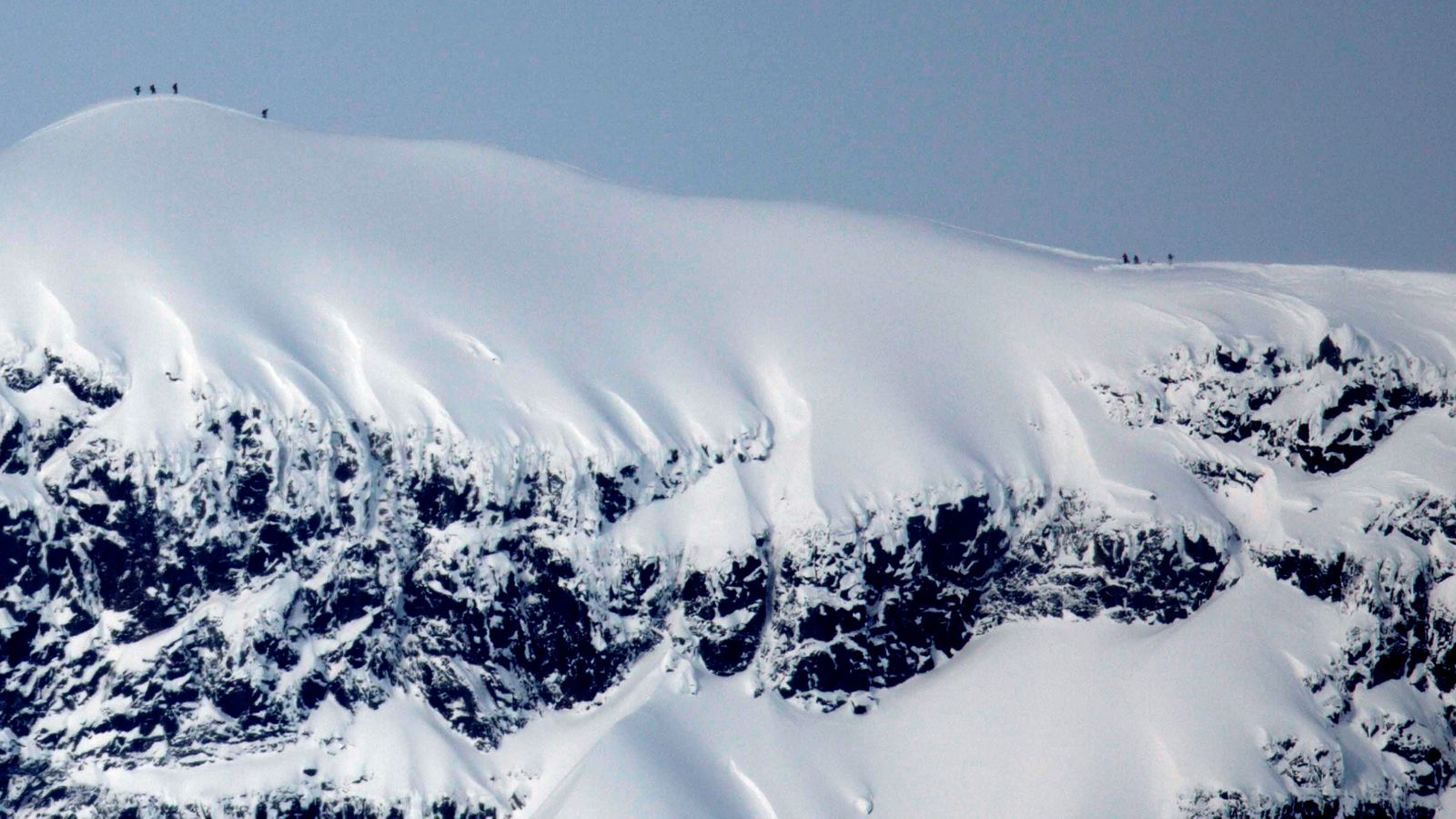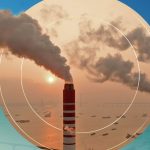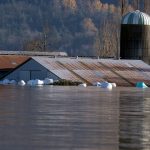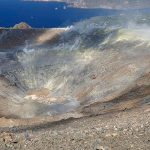The only remaining mountaintop glacier in Sweden has lost another two metres in height during the past year due to climate change.
The ice sheet, located on the south side of the Kebnekaise mountain, lost its title as Sweden‘s highest point in 2019 after a third of it melted.
Kebnekaise’s north peak, where there is no glacier, is now taller, with the south peak coming in second.
Please use Chrome browser for a more accessible video player
Stockholm University researchers measured the glacier at 2,094.6m (6,912 ft) above sea level on Saturday.
“This is the lowest height that has been measured since the measurements started in the 1940s,” they said.
“The decrease in the peak and the changed appearance of the drift can mainly be explained by rising air temperatures but also changing wind conditions, which affect where the snow accumulates in the winter.”
Academics pointed to a recent climate report by the United Nations, which warned that global warming has caused the unprecedented melting of glaciers.
Kebnekaise’s south peak was 2,118m above sea level in the mid-1990s.
The Swedish massif is about 150km north of the Arctic Circle, part of the Scandinavian mountain range that stretches across large parts of northern Norway and Sweden.
Kebnekaise is within the Laponian area, a UNESCO World Heritage Site.
The mountain’s glacier lost 24m of its roughly 60m of ice cap between 1969 and 2019.
It has been melting by one metre each year in the past two decades, according to the university.
In 2018, Iceland unveiled a plaque to its Okjokull ice sheet, the first of the country’s hundreds of glaciers to melt away due to climate change.
Researchers at the University of Leeds have warned that the melting of the world’s mountain glaciers could be releasing damaging carbon emissions into the atmosphere and accelerating climate change.
Experts believe the “unexpected form of climate feedback” means global warming is driving glacier loss and “rapidly” recycling carbon in rivers.
Please use Chrome browser for a more accessible video player
The process has been measured in 57 rivers in six mountain ranges across the world in Austria, Ecuador, France, New Zealand, Norway and the US.
As global warming speeds up the loss of glaciers, downstream rivers have warmer temperatures and are less prone to sediment movement and variable water flow.
The researchers, led by the University of Leeds, said this is creating favourable conditions for fungi to thrive, which break down organic matter such as plant leaves and wood, eventually leading to the release of carbon dioxide into the air.
Subscribe to ClimateCast on Spotify, Apple Podcasts, or Spreaker.
Every day at 6.30pm, Sky News broadcasts the first daily prime time news show dedicated to climate change.
Hosted by Anna Jones, The Daily Climate Show is following Sky News correspondents as they investigate how global warming is changing our landscape and how we all live our lives.
The show will also highlight solutions to the crisis and show how small changes can make a big difference.






















